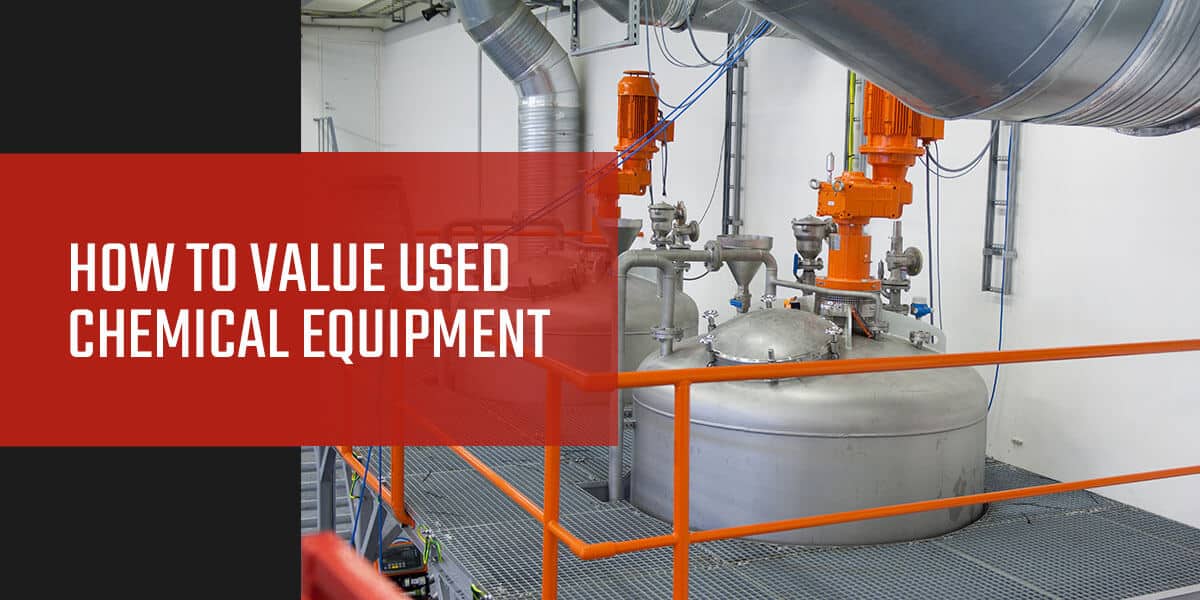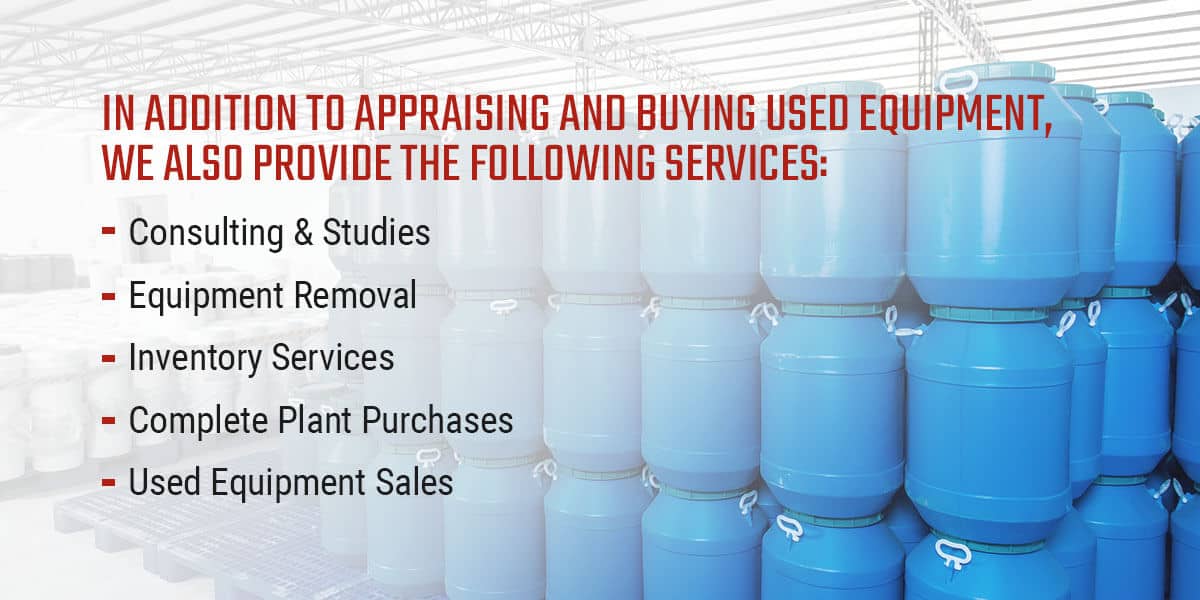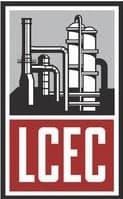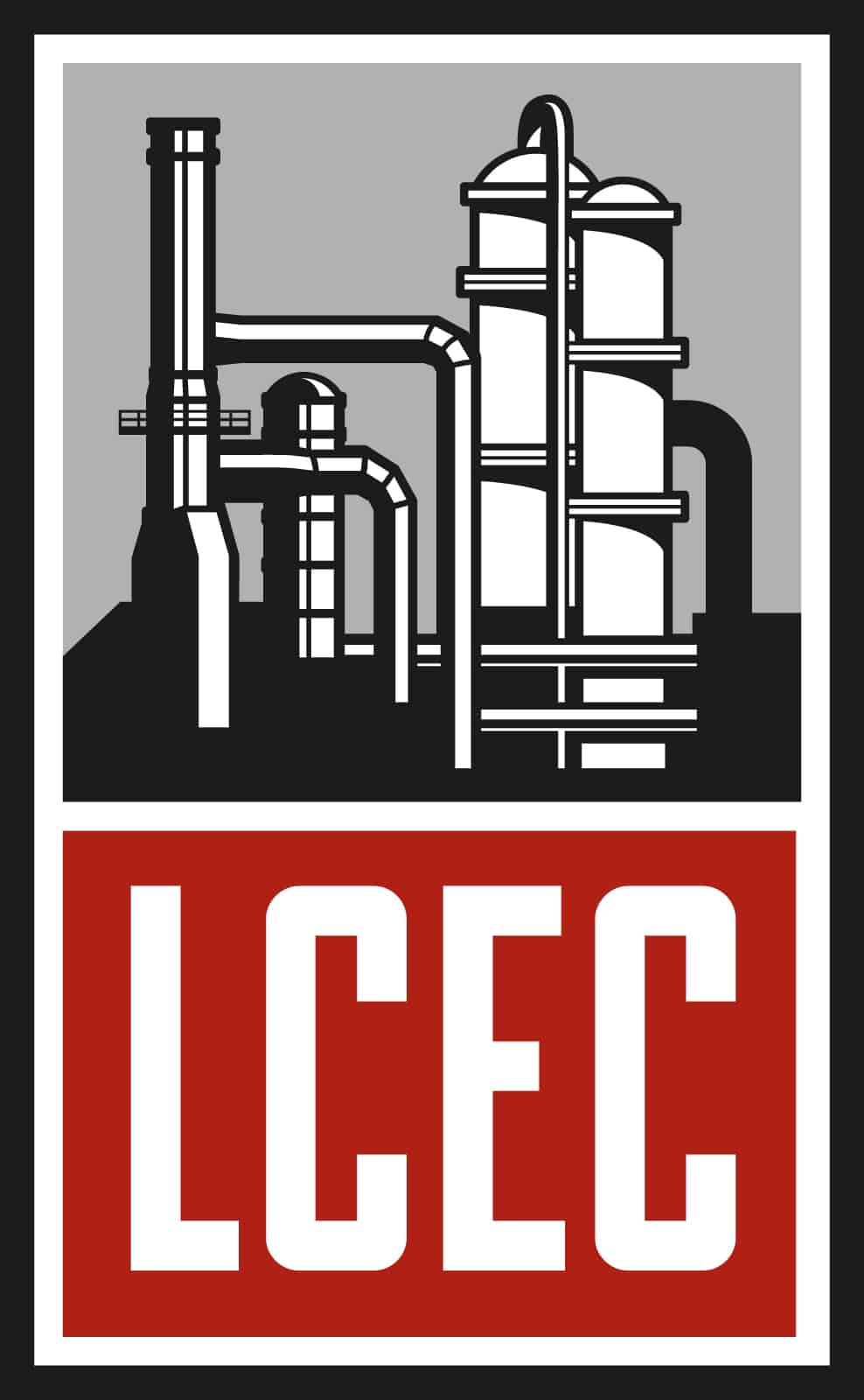
You have an old piece of equipment — or several pieces — that you need to get off your hands. Maybe you’re upgrading to a newer model, or perhaps your facility’s needs have changed, and you have to make space for other operations. Either way, selling used equipment that still has some life left can earn you a return on your investment, but how can you ensure you’re getting the most bang for your buck?
Your equipment’s resale value depends on various factors, many of which are beyond your control as a seller. However, understanding how each of these variables affects the asking price of your used equipment can inform your strategy and help you figure out how to get the best return on your investment.
6 Factors That Affect the Value of Used Equipment
Understanding what impacts used equipment values can help you determine whether you’re getting a fair price. The following factors are the most influential in determining resale value.
1. Age
While it is true that older equipment generally has a lower resale value than newer pieces, every machine ages differently. For example, the value of a used air fin cooler will differ from that of a heat exchanger, even though they may be the same age. The extent of use is also more pivotal for some machines than others.
Depreciation plays a significant role in determining how much you can get for your used equipment. While its resale value is usually proportional to the original price, that depends on how long ago the manufacturer first released it. If it has been on the market for more than a few years, you may get a much lower price for it than you expect.
2. Condition
Equipment in good condition is usually more valuable than poorly maintained equipment, regardless of age or brand. For example, if you regularly perform preventive maintenance on an older dryer you’re trying to resell, you’re likely to get a better price for it than you would if you were trying to sell a newer model you neglected to maintain.
If you’re considering selling your equipment or you plan to do so in the future, it’s best to sell it while it’s still in excellent condition. Perform regular preventive maintenance and inspect your equipment frequently to ensure it’s working well. Your facility will experience less downtime, and you’ll get a higher return on your investment.
3. Market Value
Changes in the market can dramatically change the price you can expect to get for your used equipment. Two overall markets affect resale value.
- Forced-liquidation value: The expected value of an asset in a transaction involving one seller and many potential buyers. FLV is usually a factor in public auctions, where sales are subject to strict timelines, rather than with private resale.
- Fair-market value: The typical retail value of equipment in an open, competitive market where both buyers and sellers are well-informed and mutually agree on the price. This price depends on several factors, including the original sale price, the extent of depreciation and the retail value of similar pieces.
Your used equipment’s market value will fluctuate depending on the following factors.
- Availability of like machines: When plenty of similar machines are saturating the market, your machine’s value will inevitably decrease. Similarly, when there are few machines like yours available, you can set a higher asking price.
- Transportation costs: Depending on your equipment’s size and weight, your buyer may need to make an additional investment to move it to their location.
- Support costs: Some manufacturers will charge an additional fee to the buyer to supplement the support a second owner needs.
4. Economic Conditions
Changes in the overall state of the economy can significantly impact the value of used machinery. For example, chemical manufacturing plants process less product when a recession occurs, which leads to a decline in demand for equipment. During these periods, you’re likely to make less on your sale than you would if you sold during a period of economic growth.
Critical economic factors to watch include:
- Changes in political administrations
- Inflation
- Stock market fluctuations
- Interest rates
5. Parts Availability
This factor goes hand in hand with age. Eventually, your original equipment manufacturer will stop producing replacement parts for your equipment because it is now out of date.
You’re most likely to get a better price for your equipment while your OEM still supports it. Before you sell, ensure replacement parts are still available and easy to obtain — this is when you’ll probably get the best deal.
6. Timing
Properly timing your sale directly impacts resale value. Sometimes, you must get rid of your equipment immediately to make room for new acquisitions, so you opt for a selling method that gets the job done as quickly as possible. However, you’re likely to lose out on sales that way.
If you can afford to wait for ideal market conditions, you’re likely to have more opportunities to maximize your return.
Tips for Selling Used Equipment
Need some advice on where to start? Here are some additional tips and tricks for maximizing your return on investment.
- Clean your equipment: A simple clean-up can work wonders in improving resale value. Performing a thorough cleaning can also help you identify any imperfections, which can impact your resale value.
- Take photos and videos: Whether you’re working with an equipment company or you plan to sell yourself, providing visual evidence of your equipment’s condition can give your potential buyers confidence in their decision to purchase from you.
- Keep an eye on the market: Knowing how the resale market works is critical to getting the most for your used equipment. Watch price fluctuations and the changing availability of similar equipment to determine the best time to sell.
- Get an appraisal: Ask a certified equipment appraiser to determine your equipment’s resale value. These professionals have years of experience under their belt, allowing them to accurately determine the fair market value of used machinery.
Why Should You Sell to Louisiana Chemical Equipment Company?
We’re more than a premier international chemical equipment supplier — we’re also a top buyer of chemical industry equipment. Our experienced appraisal team will consider anything you want to sell, from cooling towers to centrifuges.

In addition to appraising and buying used equipment, we also provide the following services:
- Consulting and studies
- Equipment removal
- Inventory services
- Complete plant purchases
- Used equipment sales
Reach out to us today for more information about what we can do for your facility.
Sell Your Used Equipment to LCEC
Are you looking to sell used chemical equipment? Provide us with some information, and we’ll get back to you with more details about our process. Get started by filling out our online form here.
Louisiana Chemical Equipment Company • Toll Free 866-259-6421 • International +1-281-471-4900
+1-225-923-3602 • sales@LCEC.com • plants@LCEC.com
Louisiana Chemical Equipment Company, L.L.C.
offers an extensive range of quality chemical process equipment and Complete Chemical Plants with competitive pricing.


